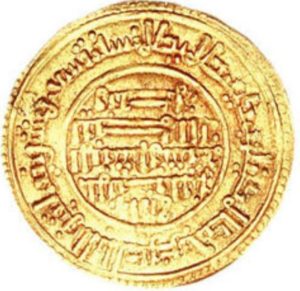The Crown Rabbi Who Built Spain

A Castilian maravedi gold coin issued in 1191
Abraham Seneor (1412-1493) was born in Segovia, Castile, into a wealthy Sephardic Jewish family who served as treasurers and accountants for Spanish monarchs. Seneor himself served the Castilian crown. In 1469, he was the key negotiator that arranged the marriage of Isabella of Castile to Ferdinand of Aragon, resulting in the eventual birth of the new Kingdom of Spain. Seneor became Isabella’s main advisor and confidante. In 1480, Isabella decreed that Seneor would receive a lifetime pension of a whopping 100,000 maravedi coins per year for his invaluable services. He was also appointed the Jewish chief justice and “crown rabbi”. In this role, he worked together with his close friend and fellow rabbi-treasurer, Don Isaac Abarbanel. Between the two of them, they were able to raise the sums needed for the Spanish to defeat the Moors in the War of Grenada. They were also the ones that got crown support and funding for Christopher Columbus’ first trip to America. Seneor often intervened on behalf of the Jews, and saved countless Jewish lives by ransoming those that had been captured by pirates. In 1492, the Spanish decreed the Edict of Expulsion to exile all Jews who did not convert to Christianity. Seneor was 80 years old, and knew he wouldn’t survive exile and expulsion. While the younger Abarbanel refused to stay in Spain (although he was given an exemption), the older Seneor decided to convert, at least publicly, in order to keep his influential role and try to ease the plight of the Jews as much as possible. He helped secure temporary refugee for the Jews in Portugal, then did whatever he could to make sure the Jewish exiles did not lose all of their wealth. Still, he was unable to survive the stress of the ordeal and passed away just months after the Expulsion. Seneor had taken on the new name Fernando Coronel, starting a new lineage of Spanish nobility. The Coronel children continued to play important roles in Spanish affairs for decades to come. Many of them were arrested by the Inquisition for continuing to practice Judaism in secret; some were executed and others deported. A great number ultimately returned to Judaism in Holland and the Americas.
Words of the Week
Israel was extraordinary in being the one socially revolutionary people in the Near East to produce a literature and to survive as a distinctive cultural and religious entity.
– Norman Gottwald, renowned professor of Biblical studies and political activist

 Manoel Dias Soeiro (1604-1657) was born in Madeira, an island off of Portugal, where his parents fled from the Portuguese Inquisition. They soon moved to the Netherlands, where Soeiro grew up and became a respected rabbi and author, known by his Hebrew name Menashe ben Israel. In Holland, he established the first Hebrew printing press at the young age of 22, and his writings (in five languages!) would gain great fame, not only in the Jewish community, but among the greatest scholars and philosophers of the age, including Vieira, de Groot, and Huet. A portrait of Soeiro was even painted by Rembrandt! A great kabbalist, Soeiro wrote and published one of the earliest Jewish treatises on reincarnation, called Nishmat Hayim. Among his students was the infamous Baruch (Benedict) Spinoza. In 1638, Soeiro moved to Brazil. At the time, there was a popular notion that the natives were actually the Lost Tribes of Israel. This inspired Soeiro to take up the role of helping Jewish causes around the world. His first stop was England, where virtually no Jews lived since they were expelled in 1290. Soeiro worked hard to open the doors to their return, and in December 1655, the re-admittance of Jews to England was granted. Sadly, Menashe could not continue his work. Upon return to the Netherlands, his son passed away. Unable to contain the grief, Soeiro passed away himself in the midst of the funeral.
Manoel Dias Soeiro (1604-1657) was born in Madeira, an island off of Portugal, where his parents fled from the Portuguese Inquisition. They soon moved to the Netherlands, where Soeiro grew up and became a respected rabbi and author, known by his Hebrew name Menashe ben Israel. In Holland, he established the first Hebrew printing press at the young age of 22, and his writings (in five languages!) would gain great fame, not only in the Jewish community, but among the greatest scholars and philosophers of the age, including Vieira, de Groot, and Huet. A portrait of Soeiro was even painted by Rembrandt! A great kabbalist, Soeiro wrote and published one of the earliest Jewish treatises on reincarnation, called Nishmat Hayim. Among his students was the infamous Baruch (Benedict) Spinoza. In 1638, Soeiro moved to Brazil. At the time, there was a popular notion that the natives were actually the Lost Tribes of Israel. This inspired Soeiro to take up the role of helping Jewish causes around the world. His first stop was England, where virtually no Jews lived since they were expelled in 1290. Soeiro worked hard to open the doors to their return, and in December 1655, the re-admittance of Jews to England was granted. Sadly, Menashe could not continue his work. Upon return to the Netherlands, his son passed away. Unable to contain the grief, Soeiro passed away himself in the midst of the funeral.